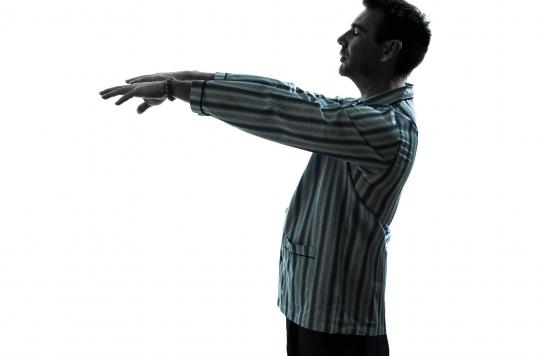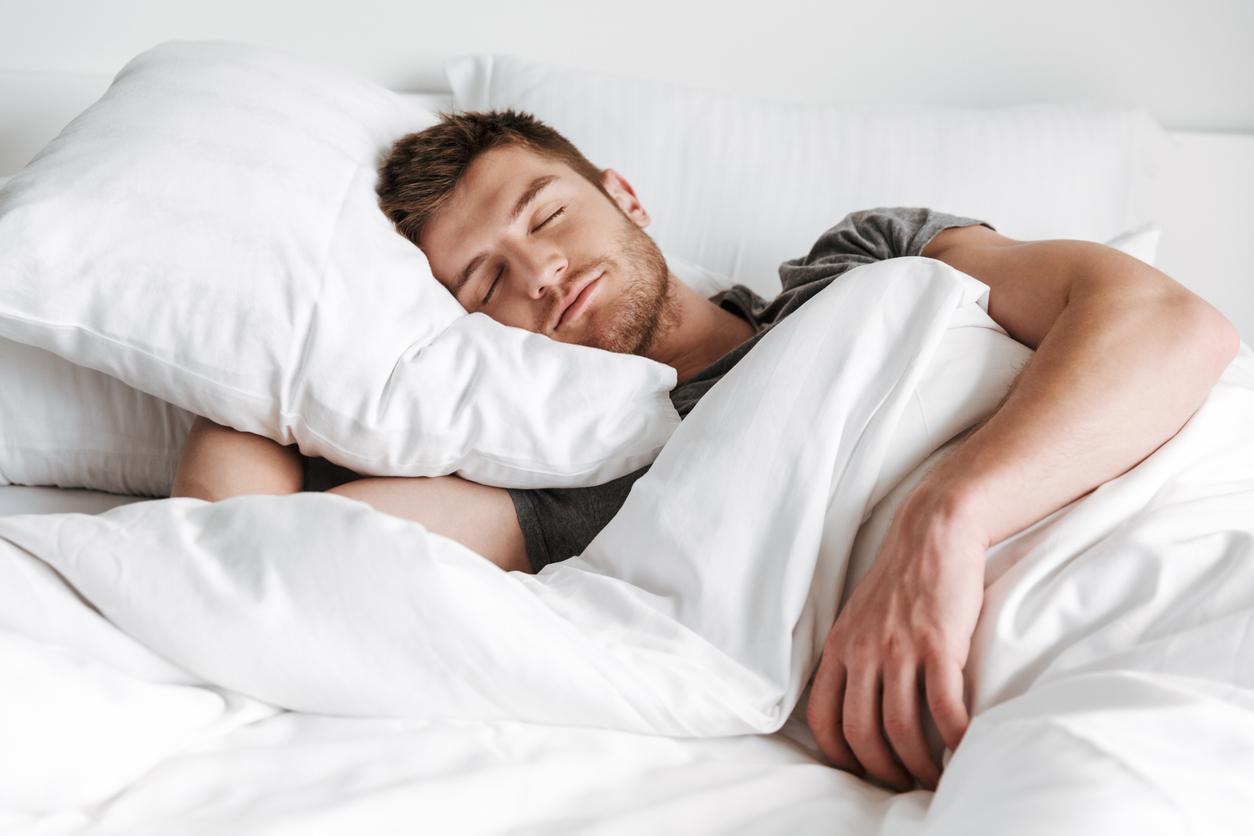The autonomic nervous system of people who sleepwalk is activated abnormally.

- In sleepwalkers, the responses of the sympathetic and parasympathetic nervous systems are abnormally activated.
- The activity of the parasympathetic system, which maintains the body’s basic activities and allows energy storage, is low in sleepwalkers.
- Sleepwalkers may show evidence of both wakefulness and deep sleep.
Sleepwalking is a non-rapid eye movement (NREM) sleep parasomnia that affects up to 4% of adults. This puts patients at serious risk of injury and, in some cases, leads to unintentional injury or violence against others. The next day can also be difficult because the sleepwalker will feel poorly rested and will have a strong desire to fall asleep. The causes leading to somnambulism remain little known. In new research, presented June 24 in the journal Frontiers in NeurologyCanadian researchers have furthered the hypothesis that sleepwalking is a wakefulness disorder and the result of poorly regulated deep sleep.
The abnormally activated autonomic nervous system
Scientists examined how the autonomic nervous system, which regulates physiological functions in the body and is measured via heart rate, influences sleepwalkers’ deep sleep. They recruited 14 adults with sleepwalking. “One of the challenges of studying large cohorts of sleepwalkers is the relatively low prevalence of the disorder in the adult population.”, estimated Professor Antonio Zadra and Doctor Andrée-Ann Baril of the University of Montreal, the two main authors of the study. Participants were assessed by video-polysomnography overnight and during recovery sleep after 25 hours of sleep deprivation.
The researchers noticed that sleepwalkers show different responses in the autonomic nervous system. Sympathetic and parasympathetic nervous system responses are abnormally activated. The first, which gera the activity of the visceral organs and the automatic functions of the organism like the breathing or the beating of the heart, activates normally in situation of fight or flight. During sleep, it is rather the parasympathetic system that activates to maintain the body’s basic activities and allow energy storage. In sleepwalkers, this is reversed and the sympathetic part activates when the response of the parasympathetic system is weaker.
The favored parasympathetic system
“Although the causes of sleepwalking remain unclear, we do know that during sleep, sleepwalkers may experience an abnormal interaction between wakefulness and deep sleep-related processes, even outside of their episodes.observed the study authors. In other words, sleepwalkers may show evidence of both wakefulness and deep sleep; a state from which episodes of somnambulism can occur. Our results indicate that, compared to healthy adults, the autonomic nervous system of sleepwalkers promotes their parasympathetic activity during sleep. This opens up a new and broader avenue for understanding the biological processes involved in sleepwalking..”
A limitation of the study, the researchers note, is that measuring the influence of the sympathetic and parasympathetic branches on a person’s heart rate is an indirect approach and can be confounded by other factors. “Although our results indicate the presence of an altered autonomic nervous system during sleepwalkers’ deep sleep, it remains to be determined whether and how this atypical activity is involved in the occurrence of actual sleepwalking episodes.”, they point out.
.

















